All rights reserved.
No part of this book may be reproduced in any form or by any electronic or mechanical means, including information storage and retrieval systems, without written permission from the author, except for the use of brief quotations in a book review.
Just shut up and write.
Introduction
A friend of mine told me over lunch the other day how her being a hyperactive child had been a nightmare for her parents for years. This being India, her mother asked every neighbor, friend, and relative for advice, even dragging her along to astrologers to find out what was wrong with her daughter that made her behave in this way.
Finally, years later, worn out by the many solutions offered by well-meaning relatives and not getting anywhere, my friends parents took her to the doctor.
What on earth am I to do with this child? her distraught mother asked. I cant get her to sit still for more than three seconds.
Stop giving her sugar, the doctor said.
My friend never had trouble with hyperactivity again.
My friends parents took her to astrologers, but I know many Western doctors who would have been quick to label and diagnose my friend with this disorder or that one. Thats because, as a society, we tend to believe that the solution to a complex problem has to be complex as well. We sacrifice the simple solutions in favor of more complicated ones that make us feel like weve made a bigger effort.
There is only one way to increase your writing output: Spend more time doing it.
This may seem pretty simplistic and, to the average writer, a bit of a letdown. Is that all? we ask. But I already knew that. Where are the secrets, the tips, and tricks no one knows? If thats all that you have to offer, what do I need you for?
The problem is that even though we know the basics to lose weight, you must eat less and exercise more; to have more money, you must spend less and save moreits in the implementation of these goals that we fall down. Instead of telling ourselves we will write 1,000 words a day for the next month, we write 5,000 words over a period of two days. Then we get stuck in a plot point, think its not working, and find a more complicated task to perform, like joining a new social network a friend recommended or redesigning our website from scratch. Then we stress over how much time and work were putting into our writing careers and how were not reaping proportionate rewards.
Every year in January, without fail, thousands of writers will set a 1,000-word daily writing goal. Most of us will not write anywhere close to that number. If we did write 1,000 words a day, which wouldnt take more than one or two hours, wed have written 365,000 words at the end of the year. Three novels. Write two hours a day and have three finished novels at the end of the year? That sounds doable, right?
So why dont you? Why dont I? Why dont most writers?
Generally, its because most writers dont average 1,000 words a day; most dont even come anywhere close to 500. We talk about writing. We read about writing. We obsess about writing. But often, we dont write.
This is not always your fault, as well explore in the book. But recognizing where your trouble areas are can help you go from no book a year to three books a year in no time. Ive done it. You can, too.
Typically, however, writers tend to fall in two camps either they push too hard (overwhelm! burnout!) or they dont push hard enough. The latter leads to feeling bad about themselves, which leaves them falling behind and struggling to catch up, which in turn leads to overwhelm and burnout. Both of these situations are bad. What you should do is set reasonable daily targets and do whatever it takes to meet them.
Many of us beat ourselves up about not meeting goals. In certain situations, I think were far too easy on ourselves as well. After my son was born, I found that it was suddenly easy for me to forgive myself when I didnt meet my daily targets. I had the usual excuses at the ready small child, a busy work day, a family to look after, and so on. But it was also true that I was setting those goals for a reason. So either I had to scale down my goals and expectations or I had to stop forgiving myself for not meeting them.
Theres a reason you picked up this book and are taking the time to read it. Ask yourself whats stopping you from writing. Is it truly a lack of time? Youre undoubtedly a busy person, so maybe you cant write 1,000 words a day. Could you write 500? If not an hour, could you allocate a half hour or even fifteen minutes for your writing?
The only antidote to overwhelm is consistent action. Take care of that and youll never feel overwhelmed again.
In this book, Ill guide you toward the process of doing that.
Are you ready to write? Lets begin.
L ast week I read an interview with a guy who makes $10,000 a month selling e-books on Amazon. I have to be honest, it pissed me off. This guys not a writer; hes an Internet marketer (whatever that means). His 30-page e-books are riddled with spelling mistakes in the introduction. They really should have been blog posts.
You and me? We like to think were writers. Yet, heres this guy putting books out there in the world, earning an income, and helping people. What are we doing, you and me? Were just talking. Were bullshitting ourselves.
Life is a series of small choices. The reason that writer has seven books out in the world and you have none is because every day that writer made a small, but different, choice than you did. Five hundred words instead of cocktails with his friends may have been a small decision and a big sacrifice at the time, but those sacrifices added up.
Its not just about the commitment, however. Its about the fear. The reason you dont make that small choice every day isnt because you dont want to finish that novel or youre not committed to your writing; its because youre afraid. That blank page seems so much scarier than putting on your overcoat and heading out in the cold, frigid air to a full-time job where money is guaranteed and the chance of your work being ripped to pieces minimal.
The difference between that writer who already has seven books and you is that when it came time to make the tough decisions, you spent weeks researching and procrastinating while deciding about traditional versus indie publishing. The seven-book author picked a path and followed through with it until he got the results he wanted.

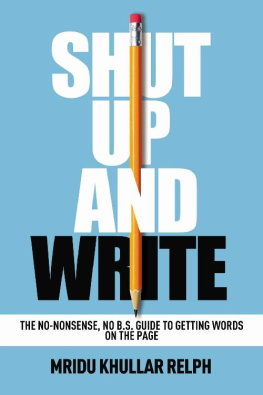
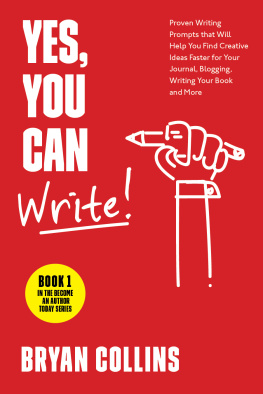


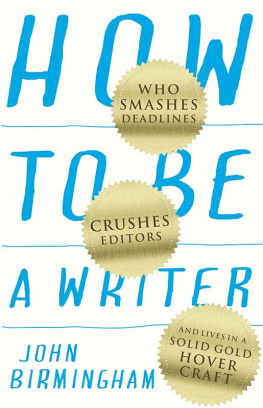
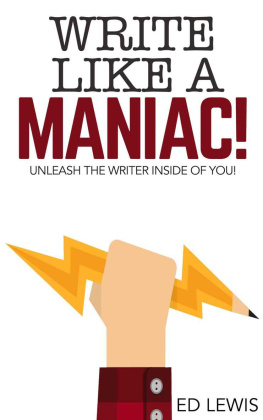
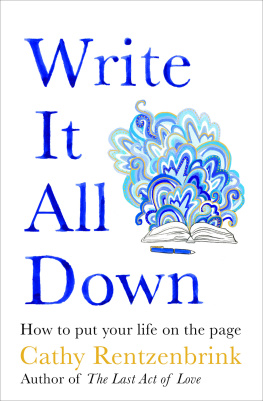
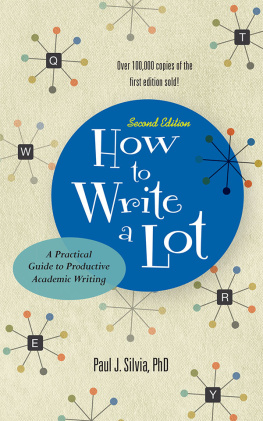

 @mridukhullar
@mridukhullar mridukhullarrelph
mridukhullarrelph